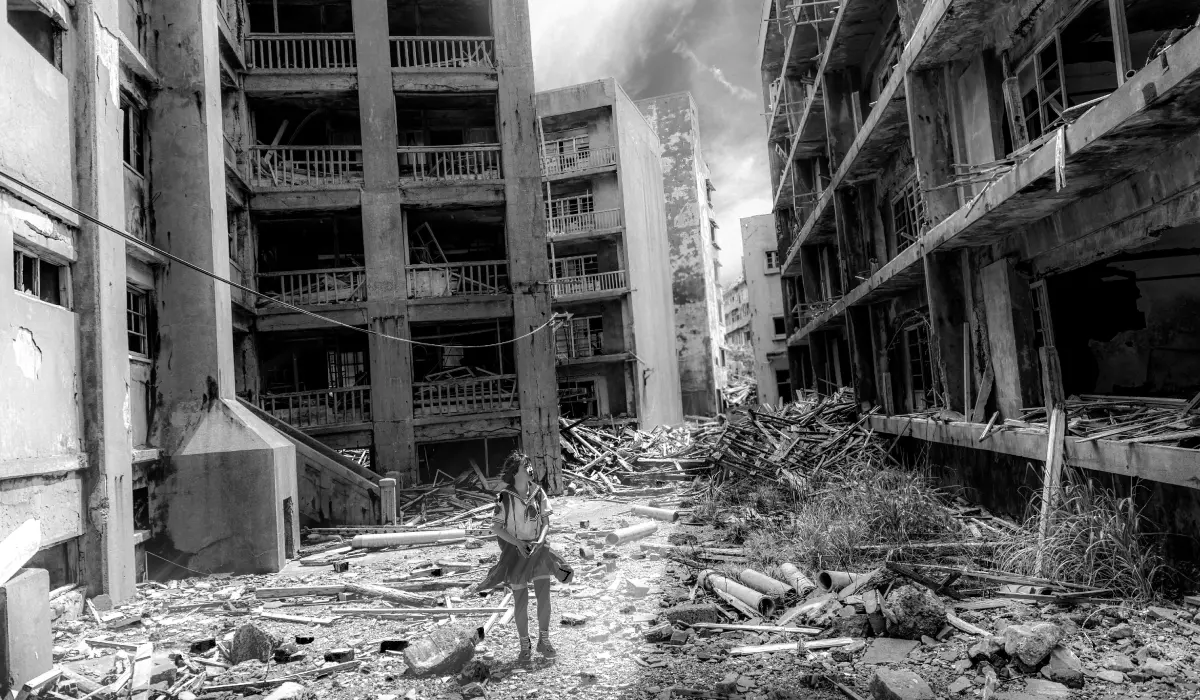
War and Morality: Philosophical Perspectives on the Just Use of Force
Is war ever truly just?
This age-old question resurfaces whenever violence is waged in the name of peace or security. In March 2003, the United States, leading a coalition of allied forces, invaded Iraq under the stated aims of dismantling weapons of mass destruction and liberating the Iraqi people. While the operation was presented as morally necessary, it was soon condemned as a war built on flawed premises. The world was forced to ask: Was the war legal? Was it moral? Was it just?
These are not merely political questions they are deeply philosophical. For centuries, thinkers from Cicero to Clausewitz, from Saint Augustine to Kant, have grappled with the ethical boundaries of warfare, giving rise to the doctrine of Just War Theory. This note traces the intellectual journey of this tradition, examining how different eras, ideologies, and conflicts have shaped our understanding of moral warfare.
The Roman Seed: Cicero and the Ethics of Peace through War
Our story begins in ancient Rome with Marcus Tullius Cicero, whose thoughts laid the earliest foundations of Just War theory. A philosopher-statesman navigating the turbulence of a declining republic, Cicero believed that war must serve a higher moral purpose not conquest, but peace.
“Wars should be undertaken for the purpose of securing peace,” he wrote in De Officiis.
Cicero emphasized that war should only be waged as a last resort, with diplomacy exhausted and justice clearly on one’s side. This moral standard clashed with the later Roman imperial ambitions, yet his framework endured as a beacon, soon to be adapted by early Christian thinkers.
Sanctifying War: St. Augustine’s Christian Ethics of Violence
As the Roman Empire teetered and Christianity rose in influence, St. Augustine inherited Cicero’s legacy and infused it with theological depth. In his monumental work City of God, Augustine recognized the fallen nature of humanity and accepted war as a tragic necessity.
“Peace should be the object of your desire; war should be waged only as a necessity,” he proclaimed.
For Augustine, legitimate wars must be declared by rightful authorities and waged with the right intentions not for revenge or plunder, but to secure peace and order. His moral compass would influence Christian doctrine for centuries, shaping resistance against barbarian invasions while denouncing imperial overreach.
A Moral Blueprint: Thomas Aquinas and the Scholastic Refinement
Fast forward to the 13th century, where St. Thomas Aquinas formalized Augustine’s principles into a comprehensive moral framework. Writing in Summa Theologica, Aquinas identified three essential conditions for a just war:
- It must be declared by a legitimate authority.
- It must be fought for a just cause.
- It must be waged with right intention.
Aquinas, blending Christian theology with Aristotelian ethics, helped embed Just War theory into medieval canon law and emerging secular legal systems. His ideas would echo through the justification of the Crusades, although critics argue that many such campaigns failed the moral tests he outline particularly that of intention and proportionality.
From God to Government: Hobbes and the Rise of State Sovereignty
As the religious dominance of medieval Europe faded, a new era of state-centered thought emerged. Thomas Hobbes, writing amidst the English Civil War in Leviathan, replaced divine authority with the social contract. He described a natural human condition of war and insecurity, arguing that people ceded freedoms to a sovereign in exchange for order.
Hobbes did not concern himself with the moral justification of war, but rather with its pragmatic necessity. The sovereign had full authority to use force if it ensured the survival of the state. In this realist tradition, war became less a question of ethics and more a matter of political calculus a theme that would influence generations of strategists.
Pragmatism over Principle: Machiavelli’s Cold Logic of Power
Contemporaneously, Niccolò Machiavelli offered a brutally honest view of power and war in The Prince. To him, morality was a luxury in the brutal game of politics. War was not about justice it was about survival and strategy.
“The end justifies the means,” he argued unapologetically.
Machiavelli’s insights, though controversial, resonate in modern realpolitik: statecraft often prioritizes national interest over ethical deliberation. His analysis of Cesare Borgia’s ruthless conquests exemplifies how rulers, in pursuit of stability, may forsake virtue.
War as an Instrument: Clausewitz and the Politics of Force
This line of thinking reached a strategic climax with Carl von Clausewitz, the 19th-century Prussian general. In his seminal work On War, he famously declared:
“War is merely the continuation of policy by other means.”
Clausewitz saw war not as a moral decision but as a political tool, used when diplomacy failed. He recognized the chaos and unpredictability the “fog of war” and warned against romanticizing it. Though not dismissive of ethics, Clausewitz firmly subordinated them to national goals, as seen during the total wars of the 20th century.
The Moral Rebuttal: Kant, Tolstoy, and Arendt Challenge the War Paradigm
In contrast to realism, Immanuel Kant envisioned a future where peace was not optional, but obligatory. In Perpetual Peace, he proposed a global order of republican states governed by law and mutual respect.
“Standing armies shall in time be abolished.”
Kant’s ideals inspired the creation of international institutions such as the League of Nations and later the United Nations, though both have struggled to enforce peace in practice.
Leo Tolstoy, witnessing the horrors of war firsthand, rejected all forms of violence. A staunch pacifist, he declared in The Kingdom of God is Within You:
“War is a product of human folly and greed.”
Tolstoy’s ethics inspired Mahatma Gandhi and the global non-violent resistance movement, underlining the belief that justice cannot be achieved through force.
Hannah Arendt, writing after the Holocaust, introduced the haunting concept of the “banality of evil.” In Eichmann in Jerusalem, she demonstrated how ordinary individuals, obeying orders, could commit unspeakable atrocities forcing us to examine the ethical accountability of not just leaders, but also followers, bureaucrats, and systems.
Historical Mirrors: When Philosophy Meets the Battlefield
The theoretical frameworks of Just War have been tested repeatedly:
- World War II is often hailed as a just war against tyranny, yet the atomic bombings of Hiroshima and Nagasaki remain ethically contentious.
- The Vietnam War, begun under the banner of containing communism, failed on multiple moral fronts intention, legitimacy, and proportionality.
- India’s Kargil War (1999), in contrast, is widely viewed as a legitimate act of self-defense, aligning with Aquinas’ criteria and international norms.
- The Ukraine-Russia War (2022) has reignited debates on aggression vs. defense, with global support for Ukraine invoking both Kantian and Just War principles.
New Frontiers, Old Dilemmas: War in the Age of Technology
Modern warfare introduces new ethical complexities:
- Drone strikes raise questions of accountability when decisions are automated, who bears the moral burden?
- Terrorism and asymmetric warfare challenge traditional ideas of state-based authority and proportionality.
- Humanitarian interventions, like NATO’s in Kosovo, blur the line between moral imperative and political will.
Bridging Realism and Ethics
War remains a harsh reality of the human condition. From Cicero’s peaceful ideals to Clausewitz’s strategic doctrine, from Kant’s utopian vision to Tolstoy’s moral clarity, philosophers have offered contrasting lenses through which to view war.
The enduring relevance of Just War Theory lies in its demand that power be checked by principle, that strategy be guided by conscience. As global conflicts continue—from border skirmishes to cyber warfare the challenge is not merely to fight wars, but to justify them, both in the arena of international law and in the deeper court of human morality.
For in the end, a war must not only be won it must also be right.
References
-
Cicero. De Officiis. Trans. Walter Miller, Harvard University Press, 1913.
-
Augustine. City of God. Trans. Henry Bettenson, Penguin Classics, 2003.
-
Aquinas, Thomas. Summa Theologica. Trans. Fathers of the English Dominican Province, Christian Classics, 1981.
-
Hobbes, Thomas. Leviathan. Oxford University Press, 1998.
-
Clausewitz, Carl von. On War. Princeton University Press, 1989.
-
Kant, Immanuel. Perpetual Peace and Other Essays. Hackett Publishing, 1983.
-
Tolstoy, Leo. The Kingdom of God is Within You. Dover Publications, 2006.
-
Arendt, Hannah. Eichmann in Jerusalem: A Report on the Banality of Evil. Penguin Books, 2006.

